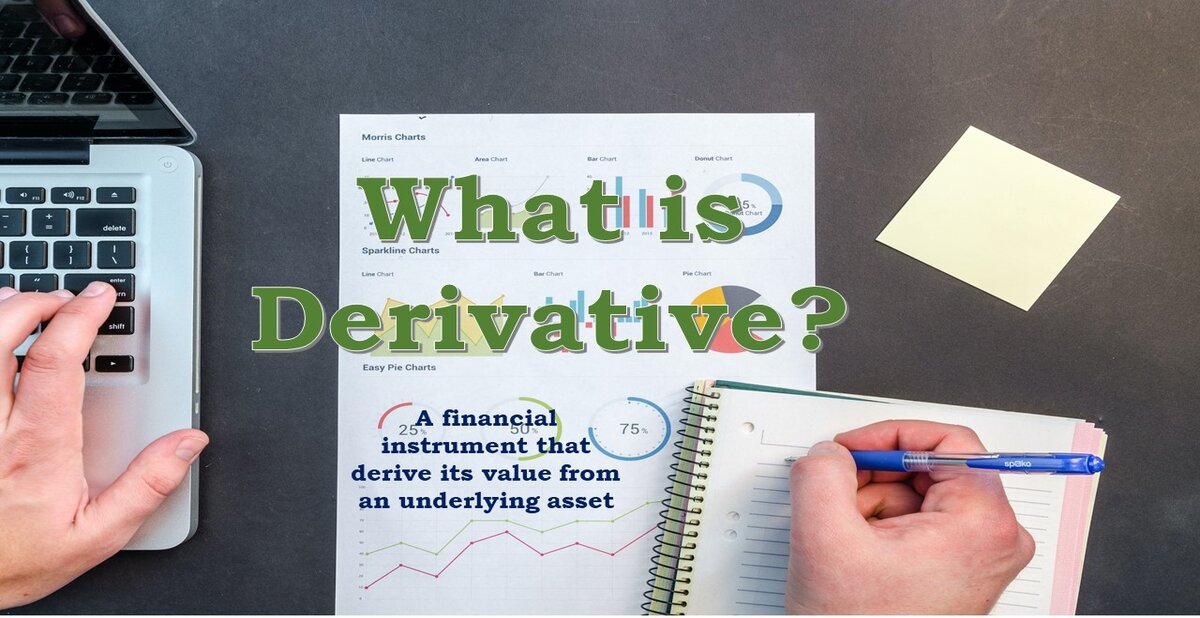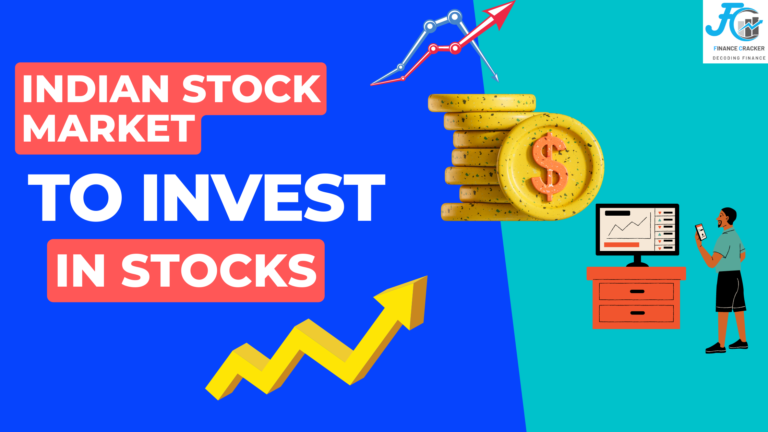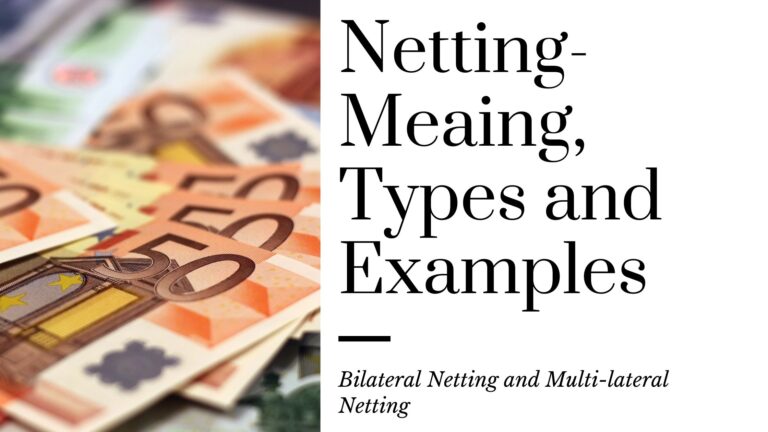DISCUSSION AT A GLANCE
Meaning- Derivative is a product or contract or instrument, which get its value from the value of an original or underlying asset or group of assets.
Use of Derivative- hedging, speculation, arbitrage or leveraging trades
Market Place of Derivative- Over-The-Counter (OTC) and Exchange Traded
Forms of Derivative- Option, Future, Forward and Swaps
Participants in Derivative Market- Hedgers, Speculators and Arbitrageur
Advantage of Derivative- Hedging, Providing leverage
Disadvantage of Derivative- Risk, Complex Calculation
MEANING
Before we move forward to dig into this concept let’s understand the word ‘Derivative’. In simple word ‘Derivative’ means something that is evolved from an original form.
Now let’s move to the world of finance. Here in finance, Derivative is a product or contract or instrument, which get its value from the value of an original or primal or underlying asset or group of assets. As we know that derivative gets its value from the underlying asset therefore on change in the price of underlying the price of derivative will also change. In general, the original or underlying assets are stocks, bonds, commodities, currencies, interest rates and market indexes (like Sensex and Nifty).
USE OF DERIVATIVE
Derivatives can be used for different kind of strategies like hedging, speculation, arbitrage or leveraging trades on exchanges. Elimination of exchange risk by entering into a hedging contract is one of the most important use of derivative.
For example, if you are an importer from India. You bought a product from USA for $1000, current exchange rate is 1$ = Rs. 70 and you need make this month after 3 months. Here there is a concern in your mind that in future that is after 3 months, exchange rate may not be in your favour that is there is uncertainty about exchange rate. The price of US$ may increase in future. To mitigate the risk of exchange rate fluctuation you can buy a currency derivative and lock the price of exchange rate.
If you are a speculator and you are thinking that the price of US$ is expected in increase in certain period of time. Then you can enter into a derivative contract to take the benefit of expected increase. For this you can use currency option, currency future or currency forward.

MARKET PLACE FOR DERIVATIVE
Now the next question in your mind may be where I will get these derivative products?
Derivatives can be traded in two forms Over-The-Counter (OTC) or off exchange and on exchange.
Over-The-Counter derivative contracts are of private nature. These derivative contracts are privately negotiated between counter parties without involvement of any exchange. Due to lack of exchange involvement and transparency these derivative contracts are exposed to higher risk. OTC derivative contracts are largely unregulated due to disclosure of information between parties which may affect the privacy of both parties. Forward and swaps are examples of OTC derivative. OTC derivative market is a largest derivative market. On the other hand, Exchange traded derivatives are fully standardized and regulated by exchanges like NSE (National Stock Exchange) or BSE (Bombay Stock Exchange). Under these kinds of derivatives, risk is very low. Transactions are more transparent.
FORMS OF DERIVATIVE PRODUCTS
Now your next step is to know about different types of derivative products. Following are the different forms of derivative products that can be used for different purposes-
Option is a contract between two parties to buy or sell an underlying asset. This contract provides buyer a right to buy or sell specified quantity of an underlying on or before a specific date at a specified price. In this contract option buyer is not obligated or bound to exercise his right to buy or sell the underlying asset.
To obtain this right, option buyer pays an amount to option seller or writer which is called premium or price of the option.
For example, suppose you have 1000 equity share of ICICI Bank at a price of Rs. 350 per share but you are worry that in future the price of share may fall. To hedge your position, you can buy a put option (right to sell) to sell your share at a strike price of Rs. 350 per share.
Future Contract
Under future contract two parties are agreed to buy and sell an underlying asset at future date on agreed upon price. This contract provides both parties a right and an obligation.
Future contracts are quoted on stock exchange and these derivative contracts are fully standardized.
Future buyer has right to receive the delivery of underlying asset and has an obligation also to pay the agreed price. Similarly, Future seller has right to receive the agreed price but has an obligation to deliver the underlying asset on specified date.
For example, you are a speculator and you are observing the share price of Tata Motors. Current share price of Tata Motors is Rs. 200 per share. After observation you come to conclusion that the share price of Tata Motors will fall within 1 month. To take the advantage of this you can enter into future contract to sell the share of Tata Motors on a price of Rs.200 per share after 1 month. Suppose if the price of share falls to Rs. 85 after 1 month then you will make profit of Rs. 115 per share.
Forward Contracts
Forward contracts are similar to future but the forwards contracts are not traded on exchanges like future contracts. Being an Over-The-Counter derivative product, it’s not standardised and have more risk as compare to future contracts.
Under the forward contracts two parties entered into a contract to buy or sell a specified amount of an underlying in future at specified price.
Swaps is another form of derivative product, under which parties are agreed to exchange the cash flows. Interest Rate Swap is a best example of swap derivative contract. For example, if a company has borrowed loan at variable rate and company is worried about that interest rate may increase in future that will increase his cost of loan then in this case company can enter into Interest Rate Swap to fix his problem.
PARTICIPANTS IN DERIVATIVE MARKET
- Hedgers
- Speculators
- Arbitrageurs
ADVANTAGE OF DERIVATIVE
- Hedging Risk Exposure
- Providing liquidity to the market
- Leveraging the assets
- Access to unavailable assets
DISADVANTAGES OF DERIVATIVE
- High Risk
- Complex Valuation
- Risk of Default under OTC market
- Complex to Understand




